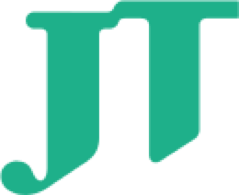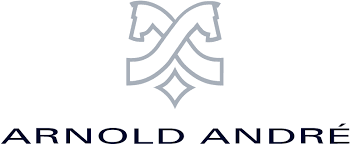Summary
The global and French tobacco markets are experiencing significant shifts, with regulatory measures and changing public attitudes driving a decline in traditional tobacco consumption. Specifically in France, despite the tobacco market generating €18.9 billion in value, the volume of sales has been consistently decreasing, with 46 thousand tonnes of cigarettes sold in 2020, dropping to 31.7 billion units by 2022. These reductions are aligned with stringent policies such as the Loi Evin and the healthcare system modernization law which introduced plain packaging and stronger health warnings. Additionally, rising tobacco prices have likely contributed to the decline in tobacco use, with cigarette prices increasing by 85.8%, and roll-your-own tobacco prices rising by 189.3%.
The tightening of cigarette import and export values reflects these market dynamics, as imports decreased from $1,882.1 million to $1,570.7 million, and exports grew marginally from $333.8 million in 2020 to $410.6 million in 2022. Meanwhile, the electronic cigarette market has been gaining traction, perceived as less harmful than traditional tobacco and pegged to reach 1.2 billion euros in size. Amidst these changes, the industry is heavily regulated: French Customs oversee retail sales and tobacconist management, with taxes representing roughly 80% of cigarette retail price. The global tobacco market is led by major corporations like Philip Morris and British American Tobacco, and in France, tobacconists have seen their numbers decline from 28,000 to 23,500, indicating consolidation within the retail segment.
Declining Smoking Prevalences Amid Strict Regulations: A Look into France's Tobacco Market Trends
Tobacco consumption in France has been experiencing significant changes due to a convergence of public health initiatives and evolving social attitudes. Despite the comprehensive nature of the market, which includes products like cigarettes, cigars, and newer forms such as electronic cigarettes, demand has seen a consistent downturn. Among the French population, the prevalence of daily smoking has seen an oscillating yet overall decline. Typically, the percentage of daily male smokers was around the low 30s percent and has decreased to the high 20s percent by 2021. For female smokers, the numbers slightly increased from the low to mid-20s percent before following a downward trend to around the low 20s percent by 2021.
As such, among individuals aged 18-75, the proportion of daily smokers diminished to nearly 25 percent by 2021. Regional disparities in smoking rates are evident within the country, with Provence-Alpes-Côte-D'azur, Hauts de France, and Occitanie witnessing some of the highest figures. In contrast, Ile de France, Pays de la Loire, and Normandy are regions with the lowest smoking rates. An analysis of smoker profiles reveals notable distinctions across various demographics. Men in the 25-34 age group and women in the 18-24 age group are most likely to be daily smokers. There's a noticeable dip in smoking rates with advancing age, particularly among women. Additionally, education level and employment status influence smoking habits, with those possessing less education and those unemployed showing a higher likelihood of being daily smokers.
A substantial segment of daily smokers have expressed a desire to quit, prompting an increase in sales of smoking cessation treatments such as oral medications and transdermal patches. Legislative measures have also played a role in diminishing tobacco consumption. The price increase on a pack of cigarettes, for example, correlates with a reduction in demand, with higher prices and stricter regulations diminishing sales volumes significantly. While cigarettes remain the dominant tobacco product in France, the electronic cigarette market is growing, viewed by many as a less dangerous alternative to traditional tobacco. Its perceived reduced harm, along with its potential as a smoking cessation aid, is steering some consumers away from conventional smoking products, which may impact the tobacco industry further.
In conclusion, France's tobacco market is witnessing a transformation, influenced by decreasing smoking rates and heightened legislative actions.
Key Players Shaping the Tobacco Market Landscape
While the tobacco market is a complex and tightly regulated industry, it is heavily influenced by a few significant players that dominate the scene. Here's a look at these pivotal companies steering the market, each with its footprint and strategic maneuvers.
- Philip Morris International (France): As a subsidiary of one of the world's leading tobacco companies, Philip Morris in France carries the weight of its global brand. Known for its flagship product Marlboro, the company has a profound influence on market trends and consumer preferences, consistently anchoring its position at the forefront of the industry.
- Imperial Brands: This British multinational tobacco company, which came into being over a century ago, has developed a powerful portfolio of products and brands. Imperial Brands has a wide geographic footprint with products sold in over 160 countries and is known for driving innovation within the market.
- Japan Tobacco: With roots in the Japanese tobacco market, Japan Tobacco International has expanded its reach globally. Holding some of the fastest-growing international brands under its umbrella, the company's international arm has made a notable impact through strategic acquisitions and expansion policies.
- British American Tobacco: As another heavyweight in the industry, British American Tobacco operates across a multitude of countries. The company has been prominent in aligning its business strategies with market shifts, investing in reduced-risk products to cater to evolving consumer demands.
- China National Tobacco Corporation: Standing as the largest tobacco company globally when considering the sheer size of the domestic market it controls, this state-owned enterprise underlines the significance of government-backed players in the sector. While less known on the international stage, its monopoly within China marks it as a critical player to watch.
With these market behemoths at play, the tobacco industry continues to evolve, shaped by their strategies and the regulatory frameworks they navigate. The interplay between their ubiquitous traditional products and forays into alternative niches, such as electronic cigarettes and other nicotine delivery systems, underscores a dynamic market responding to both public health pressures and consumer trends.
to understand this market
Detailed content
 Inforamtion
Inforamtion
- Number of pages : 30 pages
- Format : Digital and PDF versions
- Last update : 11/11/2023
 Summary and extracts
Summary and extracts
1 Market overview
1.1 Definition and scope of study
Situated at the crossroads of public and private issues, the tobacco market is a highly specific, highly regulated and monitored market, which nonetheless affects all segments of the global and French population.
The scope of this study includes the production, distribution and sale of tobacco and its by-products, such as cigarettes, cigars, cigarillos, rolling tobacco, chewing tobacco and snuff. New forms of consumption, such as electronic cigarettes, will also be discussed.
The tobacco market is in decline in France, influenced first and foremost by rising cigarette prices, which have led to a drop in cigarette sales over the past twenty years. The market is also in difficulty due to the boom in sales of medical patches and electronic cigarettes. According to Santé Publique France, there are now almost 12 million daily smokers in France.
The tobacco market is dominated by leaders such as Philip Morris International (which owns the Malboro and Philip Morris brands), Seita (which owns Fortuna, Gauloises and Gitanes), Altadis Imperial Tobacco, Japan Tobacco International and British American Tobacco. There are also some forty tobacco distributors in France, the main one being Logista France. Finally, the retail sale of tobacco products is regulated by the French customs authorities.
1.2 The global market in decline
The most recent estimates for the global tobacco market (***). [***] More than US$*** billion of this comes from the sale of conventional cigarettes, of which more than *,*** billion units are consumed each year.
Although combustible cigarettes remain the largest category, their volume has gradually declined over the years due to increased regulation ...
1.3 A downward trend in the French market
A sharp drop in market volume
The overall tobacco market (***). [***]
But in volume terms, the French tobacco market is in sharp decline, due in particular to the steady rise in cigarette prices as well as the boom in sales of medical patches and electronic cigarettes. In ****, tobacco sales were in fact ...
1.4 The rise of the electronic cigarette
"On a scale of * to **, how would you rate the dangerousness of these products?" France, ****, in % Source: ****
Often perceived as a smoking cessation tool, e-cigarettes influence the tobacco market. Vaping enjoys arelatively good image regarding its effects on health, as shown in the graph above. Respondents consider vaping to be the ...
1.5 Foreign trade
Value of tobacco and tobacco product imports France, **** - ****, in millions of dollars Source: ****
Analysis of the data provided shows a general downward trend in tobacco imports in monetary terms from **** to ****. In ****, the value of tobacco imports was $*,***.* million. This value fell slightly in ****, reaching $****.* million, a drop of *.*%. In ...
2 Demand analysis
2.1 Smoking is widespread in France but declining
Daily smoking prevalence by gender among **-** year-olds France, **** - ****, in Source: ****
The prevalence of daily smoking in France fluctuated between **** and ****. Among men, the percentage of daily smokers rose slightly from **.*% in **** to **.*% in ****, then oscillated and finally fell to **.*% in ****. Among women, prevalence rose from **.*% in **** to **.*% in ****, before ...
2.2 Smoker profiles in France
Geographical distribution
There are major regional disparities in the proportion of smokers. The regions with the highest smoking rates in France are Provence-Alpes-Côte-D'azur (***). [***]
Share of smokers by region among **-** year-olds France, ****, in % Source: ****
Age and gender
Share of smokers in the population by age and sex France, ****, in % Source: ...
2.3 The French are trying to quit smoking
More and more French smokers are trying to quit their harmful habit.
Daily smokers wishing to quit France, ****, in Source: ****
The desire to quit smoking is very strong among daily smokers: nearly * out of ** want to quit. Just under a third of them had made a quit attempt lasting at least ...
2.4 The impact of legislation on demand
Tobacco demand is highly dependent on various regulations, and in particular on taxation and other taxes: for example, theWHO estimates that a **% price increase on a pack of cigarettes reduces demand by around *% in high-income countries, and by *% to *% in low- and middle-income countries.
In France, the data provided by the ...
3 Market structure
3.1 Simplified diagram of market structure
Source: ****
3.2 Sector concentration
Based on the net sales of the world's leading tobacco producers, Forbes magazine puts Philip Morris International at the top of this ranking, with $***.* billion in sales in ****. Next come Altria Group (***).
Ranking of top tobacco companies by total sales World, ****, Billions of dollars Source: ****
From **** to the present day, tobacco ...
3.3 Tobacconists have a monopoly on the retail trade
The entire network of tobacconists in France is managed by the French customs and excise administration, providing a framework for the tobacco distribution system.
By ****, there will be a total of **,*** tobacconists , generating sales of €**.** billion.
Number of tobacconists France, ****-**** Source: ****
There is a clear downward trend in the number ...
4.1 Cigarettes are by far the most widely consumed tobacco product
Cigarettes are the most widely consumed tobacco product in France, accounting for **% of sales volume in ****. Sales of roll-your-own tobacco have risen sharply in recent years due to the higher price of industrial cigarettes. This segment will account for **% of tobacco sales in ****.
Share of volume sales of main tobacco products ...
4.2 Tobacco manufacturers set prices
Tobacco prices are set not by the government, but by tobacco manufacturers. Here are the successive stages:[***]
Manufacturers submit a proposal for prices before tax (***) to the French customs administration; The Minister of the Budget ratifies these prices to harmonize prices across the country, depending on the type of product, and ...
4.3 Steadily rising tobacco prices
Change in the price of the best-selling pack of cigarettes and roll-your-own tobacco France, **** - ****, in € Source: ****
Analysis of the data presented shows a steady increase in the price of the best-selling pack of cigarettes and the best-selling pack of rolling tobacco between **** and ****.
For the best-selling pack of cigarettes, the ...
4.4 A growing illegal parallel market
Faced with rising tobacco prices, many consumers are turning to counterfeit products. The parallel network is an attractive alternative for many smokers, as the supply is much more affordable.
Tobacco sales by network France, **** - ****, in Source: ****
From **** to ****, the proportion of tobacco purchased outside the official network rose sharply, from ...
4 Regulations
5.1 Loi Evin 1991, loi de modernisation de notre système de santé 2016
Loi Evin ****
Promulgated in **** by Health Minister Claude Evin, this law reinforces the **** Veil law, and aims to control tobacco and alcohol consumption in France. [***]
With regard to tobacco, it provides for :
A ban on advertising and free or promotional distribution, except in tobacco shops Price increases A ban on smoking ...
5.2 Maximum substance contents and individual tobacco imports
Maximum substance levels
European Directive ****/**/EC introduces Europe-wide limits for various harmful substances in cigarettes and tobacco:
Tar: ** mg / cigarette Nicotine: * mg / cigarette
Carbon monoxide: ** mg / cigarette
It is permitted to bring tobacco into France from a foreign country, but there are certain rules and limits to be respected. Beyond these ...
5.3 Sales, tax and rollover legislation
Sales
The decree of January **, **** prohibits the resale of tobacco products at cultural and sporting events and in health establishments. Cigarette scalpers face prison sentences
Under article *** of the French General Tax Code, the retail sale of tobacco is controlled by customs and carried out by tobacconists, who are required to ...
5 Positioning the players
6.1 Player segmentation
- Philip Morris International
- Imperial Brands
- Japan Tobacco
- British American Tobacco
- Altria (Philip Morris USA, Malboro)
- Logista France (Altria)
- Altadis (Imperial tobacco)
- Arnold André
 List of charts
List of charts
- Prevalence of daily smoking by sex among 18-75 year-olds
- Prevalence of daily smoking among 18-75 year-olds by region
- Prevalence of daily smoking by level of education
- Share of smokers in the population by age and sex
- Prevalence of daily smoking by monthly income per consumption unit
All our studies are available online in PDF format
Take a look at an example of our research on another market!
Latest news
Companies quoted in this study
This study contains a complete overview of the companies in the market, with the latest figures and news for each company. :
 Choosing this study means :
Choosing this study means :
Access to more than 35 hours of work
Our studies are the result of over 35 hours of research and analysis. Using our studies allows you to devote more time and added value to your projects.
Benefit from 6 years' experience and over 1,500 industry reports already produced
Our expertise enables us to produce comprehensive studies in all sectors, including niche and emerging markets.
Our know-how and methodology enable us to produce reports that offer unique value for money.
Access to several thousand articles and paid-for data
Businesscoot has access to all the paid economic press as well as exclusive databases to carry out its market research (over 30,000 articles and private sources).
To enhance our research, our analysts also use web indicators (semrush, trends, etc.) to identify market trends and company strategies. (Consult our paying sources)
Guaranteed support after your purchase
A team dedicated to after-sales service, to guarantee you a high level of satisfaction. +44 238 097 0676
A digital format designed for our users
Not only do you have access to a PDF, but also to a digital version designed for our customers. This version gives you access to sources, data in Excel format and graphics. The content of the study can therefore be easily retrieved and adapted for your specific needs.
 Our offers :
Our offers :
the tobacco market | France
- What are the figures on the size and growth of the market?
- What is driving the growth of the market and its evolution?
- What is the positioning of companies in the value chain?
- Data from several dozen databases
Pack 5 études (-15%) France
- 5 études au prix de 75,6€HT par étude à choisir parmi nos 800 titres sur le catalogue France pendant 12 mois
- Conservez -15% sur les études supplémentaires achetées
- Choisissez le remboursement des crédits non consommés au terme des 12 mois (durée du pack)
Consultez les conditions du pack et de remboursement des crédits non consommés.
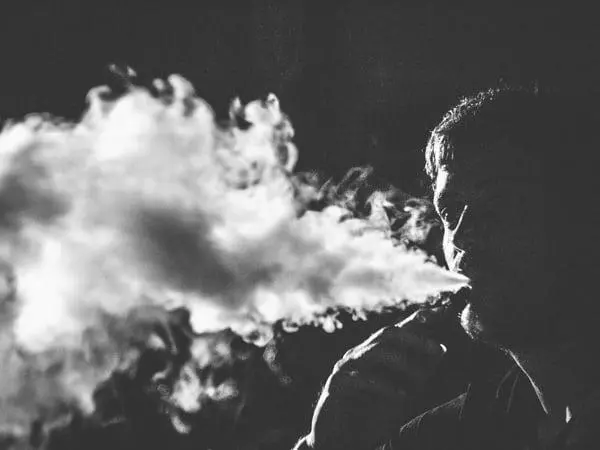




 Closure of cigarette plant in Corsica - 03/10/2023
Closure of cigarette plant in Corsica - 03/10/2023
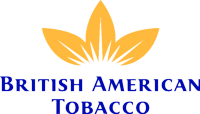 Several tobacco companies are banking on this product invented in Scandinavia. - 31/07/2023
Several tobacco companies are banking on this product invented in Scandinavia. - 31/07/2023
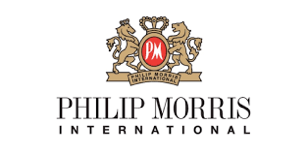 Tobacco giants face cigarette decline - 13/05/2023
Tobacco giants face cigarette decline - 13/05/2023
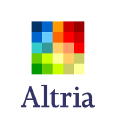 Altria spends US$2.75 billion on Njoy electronic cigarettes. - 07/03/2023
Altria spends US$2.75 billion on Njoy electronic cigarettes. - 07/03/2023
